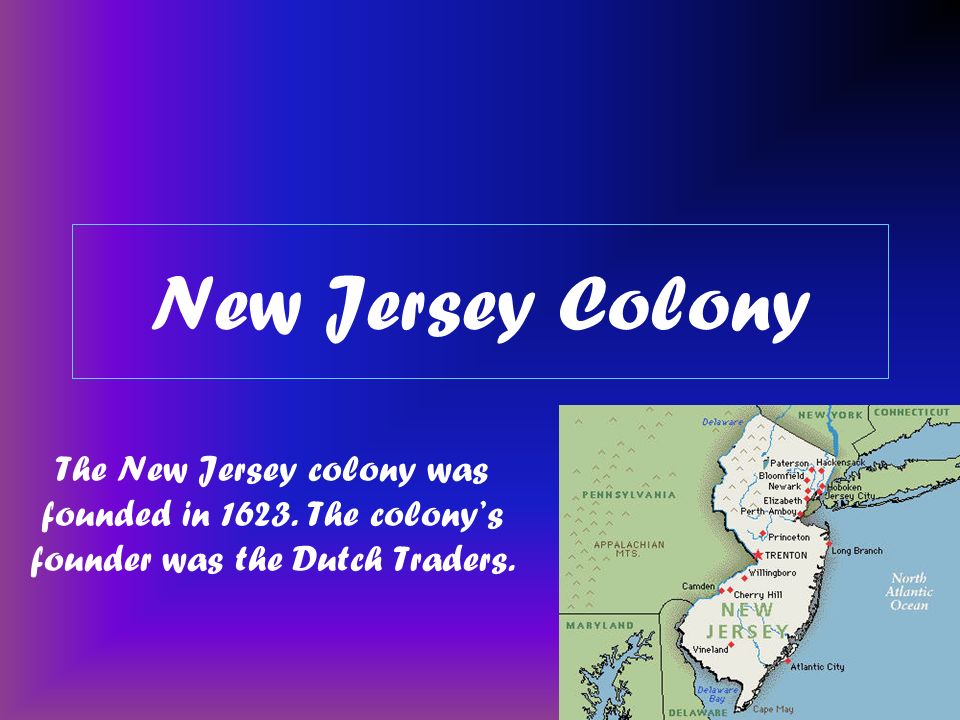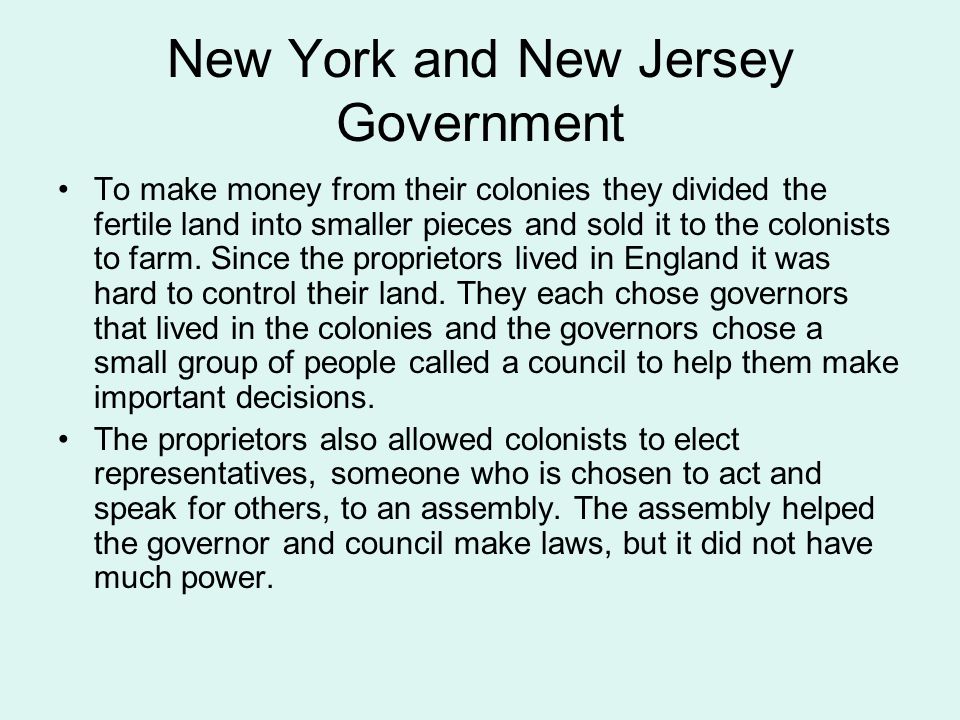
Money, or the lack thereof, was a persistent problem in colonial America. The colonists were under the control of Great Britain, where the legal tender was both gold and silver, known as a bimetallic. Yet British coins circulated only rarely in the colonies. The colonists had an unfavorable balance of trade with the mother country, meaning that the value of the goods they imported from England greatly exceeded the value of the goods exported. Most specie that flowed into the colonies through trade quickly flowed back to England in payment for these goods. Nor did the colonists have access to specie through any domestic gold or silver discoveries. In order to have a functioning economy, the colonists were forced to turn to other commodities for use as money.
The first people to live on the land now known as New Jersey were the Delaware Indians. They lived here starting at least 10, years ago. Anywhere from 8, to 20, Delaware Indians lived in the area when the first Europeans arrived. Their name means «original people» or «genuine people. Though they were considered one tribe, the Delaware Indians didn’t act as one unified group. Instead, they lived in small communities made up mostly of extended family members. The men would hunt or fish during the day. Depending on the season they might search for clams off the Jersey shore or hunt in the woods. The women worked in the gardens.
Trending News
They grew squash, beans, sweet potatoes, and corn. Europeans called them the Delaware Indians. He sailed along the coast and anchored off Sandy Hook. Although Hudson was British, he worked for the Netherlands, so he claimed the land for the Dutch. It was called New Netherlands. Small trading colonies sprang up where the present towns of Hoboken and Jersey City are located. Bergen, founded in , was New Jersey’s first permanent European settlement. In the Dutch lost New Netherlands when the British took control of the land and added it to their colonies. They divided the land in half and gave control to two proprietors: Sir George Carteret who was in charge of the east side and Lord John Berkley who was in charge of the west side.
New Jersey Colony
John Cabot was the first European explorer to come into contact with the New Jersey shore. Henry Hudson also explored this area as he searched for the northwest passage. The area that would later be New Jersey was part of New Netherland. He called his land Pavonia. However, it is not until that the first permanent European settlement of Bergen was created. He sent a small English force to blockade the harbor at New Amsterdam. Peter Stuyvesant surrendered to the English without a fight. The name of the colony comes from the Isle of Jersey, Carteret’s birthplace.

Check Out my Voki
As a member, you’ll also get unlimited access to over 79, lessons in math, English, science, history, and more. Plus, get practice tests, quizzes, and personalized coaching to help you succeed. Already registered? Log in here for access. Log in or sign up to add this lesson to a Custom Course. Log in or Sign up. Kerry has taught for eleven years in grades and is currently a 5th grade classroom teacher. Kerry also has a master’s degree and is a certified reading specialist. Imagine is the year , and you’re living in the 13 Colonies — the colony of New Jersey, to be exact. You’ve only been living in North America for a short time and are hopeful for a life of freedom and success in your new land. As you sit down to write to your family in England about the colony where you live, what will you tell them? Let’s take a closer look at this new home of yours in the colony of New Jersey as you share your new experiences with your family back home. This new land of ours was originally claimed in by this man they call Henry Hudson.
Its a Royal Colony. Hottest Questions. Asked in Colonial America How did colonial baking help the economy back then? Asked in Massachusetts How did people make money in Massachusetts bay Colony?
13 Colonies: Comparing Regions New England, Middle, and Southern
New Jersey Colony. The original 13 colonies were divided into three geographic areas nea of the New England, Middle and Southern colonies. The Province of New Jersey was an English colony in North America that existed from untilwhen it joined the other 12 of the 13 colonies in rebellion against Great Britain and became the U. Information and Facts with the New Jersey Colony Fact File Fast facts and interesting information about the founding, establishment, geography, climate, religion, history, natural resources, raw material, industries refer to Colonial Times and the famous historical people associated with the New Jersey Colony of Colonial America. Information and facts at a glance about the New Jersey Colony via this fast fact file.
You must create an account to continue watching
Farming in the Middle Colonies. New England Colonies. Middle Colonies. Southern Colonies. American Colonies Index. First 13 Colonies. New Jersey Colony Fact File.

Comments
Post a Comment